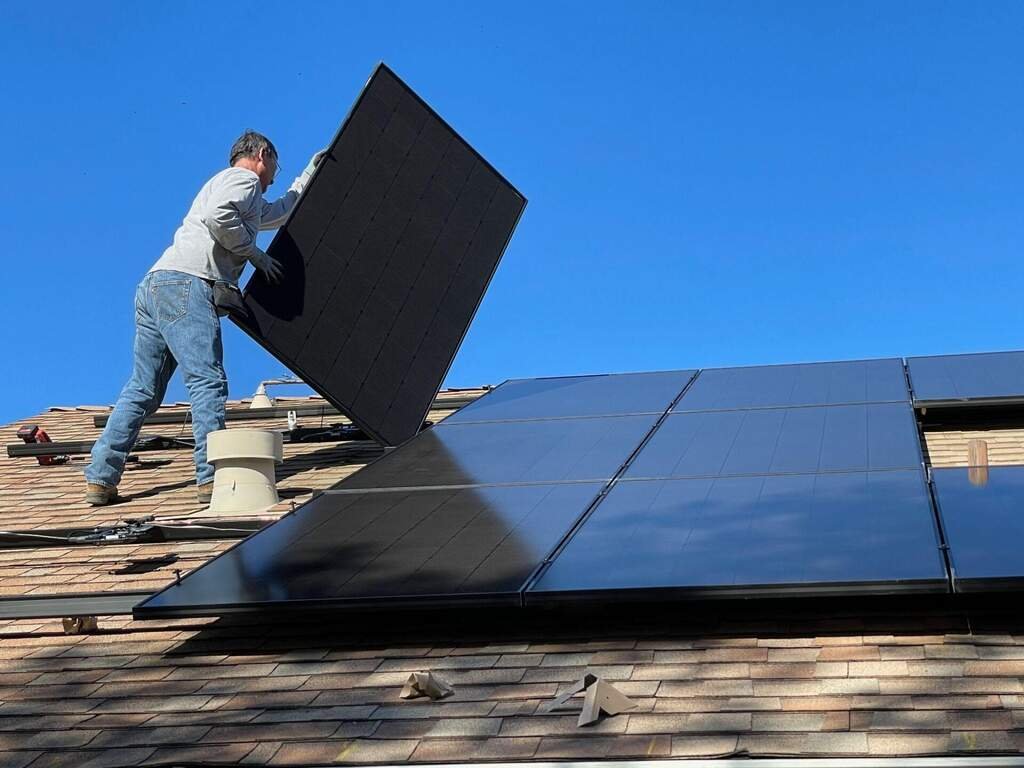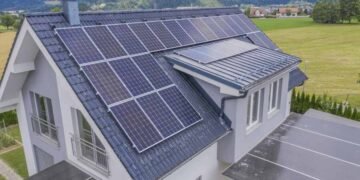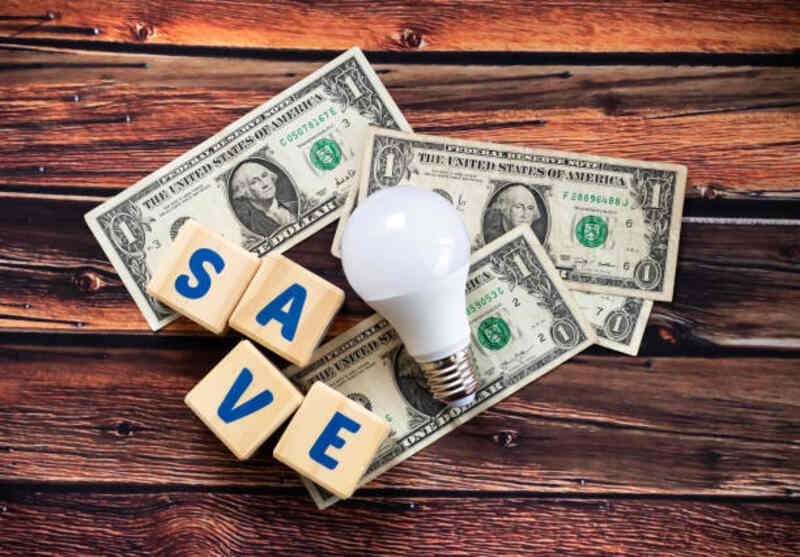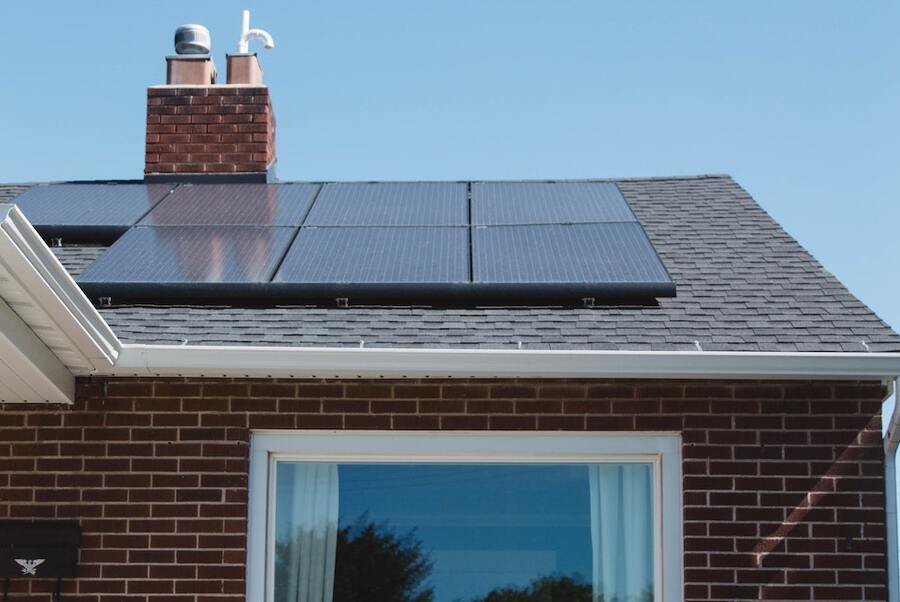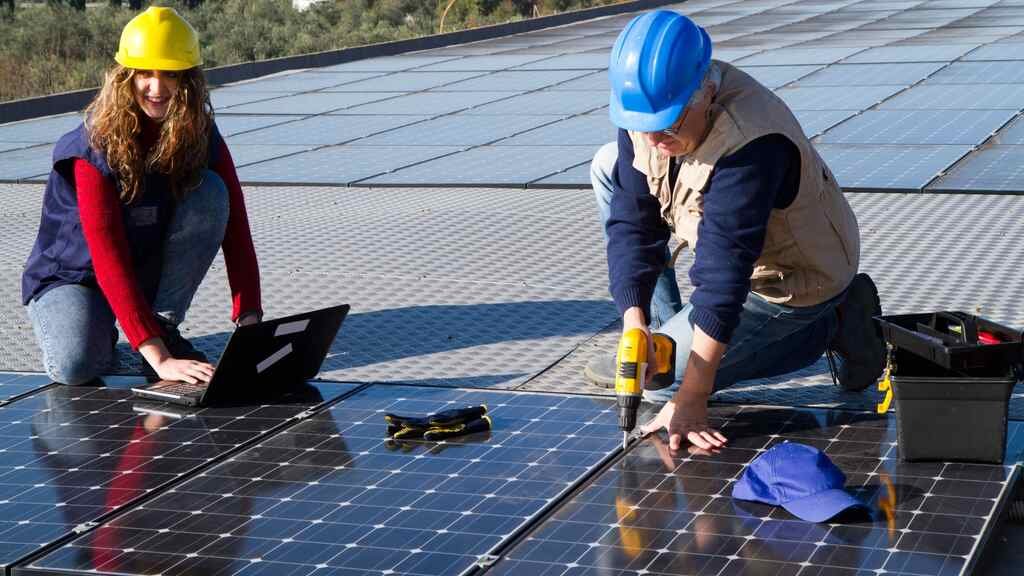Is it worth making the financial investment in solar panels for your home? As they often come with a hefty price tag, ensuring they’re a good fit for your home is crucial.
In this article, we delve deeper into understanding solar power, discuss precisely how much money you could save, and explore how much you will have to spend.
Understanding Solar Power
First, there are some essential questions you first need to ask yourself to gauge whether solar panels are the right fit for your energy production at home:
- What will the solar panel system cost you?
- How much energy will it produce for your home?
- How long will it take for your investment to pay for itself?
If you identify solar panels as a wise investment that’ll save you money, they may be the perfect renewable energy source for you!
New technology constantly upgrades solar power, including its efficiency, price, and storage options. Here are some examples of how solar power energy benefits from technological developments:
- Materials like perovskite panels hit the 2021 solar panel market, reducing customer prices.
- Silicon is used to increase efficiency. The energy that silicon-based solar panels create is growing significantly, helping us learn more about their production.
- Solar batteries are a new technology that saves unused energy your solar panel produces – giving you the option of becoming 100% energy independent.
Click here to learn more about solar batteries.
Energy Production
As solar panels use the sun to create energy, the weather in your home location is one of the most important factors in how much energy it can produce. The National Renewable Energy Laboratory (NREL) shows solar irradiation levels (how much light energy the sun emits to Earth) and is a good resource.
The size of the system you install is an impacting factor on how much energy it can produce. As you would expect, the bigger the solar panel system you install, the more energy you will create – but also the more money it will cost.
Finally, something that homeowners often forget to consider when calculating their energy production is the rotation of their homes. A south-facing roof that has no obstructions will maximize solar energy production.
The Price Tag of Solar Panels
Depending on the system size you want to install, the type of solar panels you want your design to consist of, and who you hire as your installers, the upfront costs of a solar panel system can range between $3,500-$16,000.
There’s no denying this is a large price range. Still, with many different components used to make solar energy, such as an inverter, metering equipment, cables, wiring gear, storage, and more, there’s no escaping this high price tag.
It’s often the question of whether you will save enough money on your energy bills to make this initial investment worthwhile.
Financial Savings After Having Solar Panels
Depending on how much you currently pay for energy, which varies in each household, you could save up to $1,346 on your annual energy bills. This statistic is based on the following numbers:
- A 6 kilowatt (kW) home solar system.
- A system that generates approximately 9,000-kilowatt hours (kWh).
- The average electricity price (below 15 cents per kWh).
By calculating your potential savings, you will have better insight into whether a solar panel system is worth the investment.
Solar Tax Credit
The Solar Investment Tax Credit (ITC) increased the credit limit you can apply against your income tax incidence to 30%. You can claim a federal tax credit if you have purchased or plan on buying and installing solar energy systems before 2033. This financial incentive helps to offset the high prices of the components, installation, and related fees.
Eligibility of The Solar Investment Tax Credit
Four factors are involved in the eligibility for the solar investment tax credit.
- Firstly, the system for which the tax credit is being claimed must be a new installation or not previously operational.
- You must own the solar system outright, but exceptions can be made for installations and financing through a loan.
- Leasing the system or paying a third party for the energy created by the solar panel system is prohibited.
- The credit must be claimed on the cost of the system, fees, installation costs, and the price of its components. Two elements that aren’t included are appliances or items that operate on the energy created.
Conclusion: Should You Invest in Solar Panels?
As discussed throughout this article, solar panels present several benefits, such as potential savings on your energy bills and a reduced carbon footprint.
While this form of energy does have its pros, there are some drawbacks to consider. For instance, they present expensive upfront costs and rely on sunlight, meaning they may not be the best option for residents living in cloudy, foggy areas.
To determine whether solar panels are an investment worth making, you must carefully consider critical factors, such as how much energy you will require and your budget, as this will inform you of the best course of action with your investment.
Recommended Posts:

